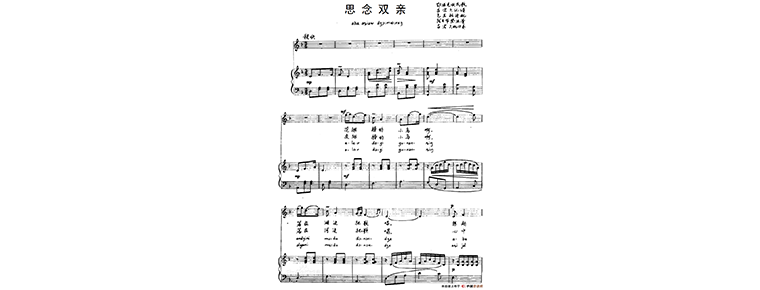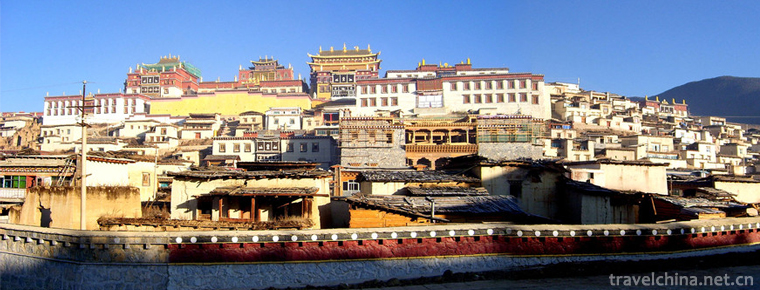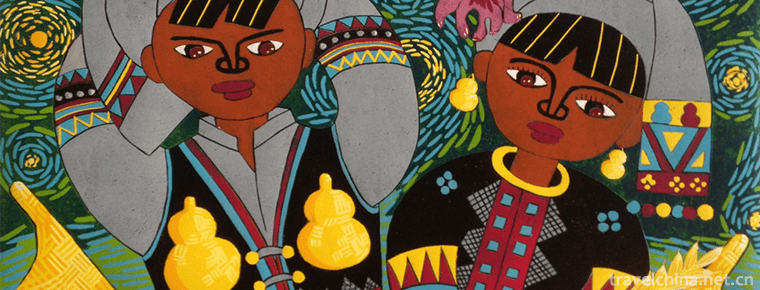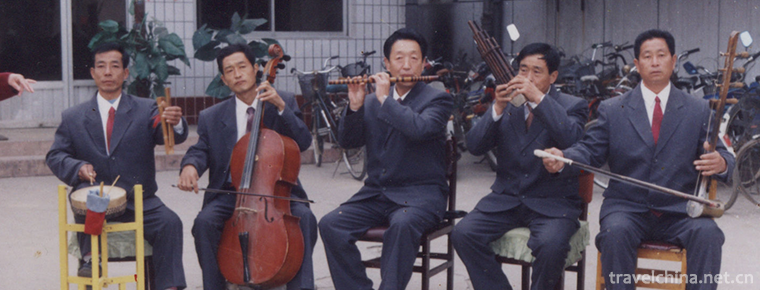2018-10-20

- By ChinaWiki.net
- Chinese Edition
- 2019-04-28
Ewenki Folk Songs
Ewenki folk songs are beautiful and beautiful, with unique style. People are improvised and sing improvised lyrics. Pastoral songs and hunting songs show the brave and simple character of the Ewenki people, and the dance steps of "Nugile" are unique, vigorous and strong, and the rhythm is strong. "Zandalege" is the general name of Ewenki folk songs and minor songs. The free and stretching melody is full of rich mountain breath. The clear and open melody will delineate the eulogies of Ewenki people to their homeland as fresh and moving as the sparkling waves on the lake.
In June 2008, the Ewenki folk songs declared by the Ewenki Autonomous Banner of Inner Mongolia Autonomous Region were listed in the second batch of national intangible cultural heritage list with the approval of the State Council.
historical origin
The development of Ewenki literature can be divided into three periods. The first period is ancient literature, which mainly includes the natural origin of oral transmission, shaman myths and legends, shaman gods, incantations and prayers. The second period is modern literature, which mainly includes about clan ancestor heroes, customs, legends, fables, jokes, love songs, nursery songs, proverbs and riddles. The third period is modern literature, mainly including new folk songs and mass literary creation activities.
artistic characteristics
Ewenki folk songs have the characteristics of broad and lyric. Their structure is square and symmetrical. They are mostly composed of upper and lower sentences, or consist of continuous repetition or change of single phrases. Ewenki folk songs use both ancient tri-tone series and pentatonic scales. Ewenki folk song lyrics often use alliteration, more linings, Lyric long tune, often like to use nasal singing, so that emotional expression meticulous.
Ewenki people like singing. Their folk songs are bold and unconstrained, full of grassland and forest flavor. It is characterized by impromptu sentiment and impromptu word filling. There are many songs that they use the same tune and fill in different words on different occasions to express their feelings of joy, anger and sorrow. The melodious and unrestrained melody reflects the broad mind and servant character of Ewenki people living in forests and grasslands. Their folk songs, both songs and poems, are expressed by singing. They have long and short lines, several lines and dozens of lines. Most of the short ones are Lyric songs, which are more called storytelling songs. Folk songs are beautiful and beautiful, with unique style, namely scenery, emotion and lyrics. Especially the pastoral songs and hunting songs show the brave and simple character of the Ewenki people.
In Ewenki traditional folk songs, besides single mode, there are quite a number of alternative mode folk songs. Its general feature is the five-tone mode based on the five-tone scale, in which the number of palace-tone folk songs, levy-tone folk songs and feather-tone folk songs is larger, while the commercial-tone folk songs and corner-tone folk songs are rare, but they are more common in Shaman music with strong religious color. It can be said that the mode characteristics of Ewenki folk songs are mainly embodied in palace mode, feather mode and levy mode.
Inheritance significance
With its concise, dignified sentences and natural and simple writing methods, Ewenki folk songs vividly and vividly express the development process of Ewenki social history, aesthetic value orientation, religious beliefs, national life customs and unique national spirit, outstanding wisdom and talent in literary creation, and have many aspects such as history, ethnology, religion, folklore, aesthetics, etc. Comprehensive value.
Representative works
Big Wild Goose Lake
The Golden Yarlow River
Song of the Mother Deer
Jinzhu and Zhulie
Why did you marry me to him?
Neihuling

Ask a Question
Your email address will not be published.



0 Questions